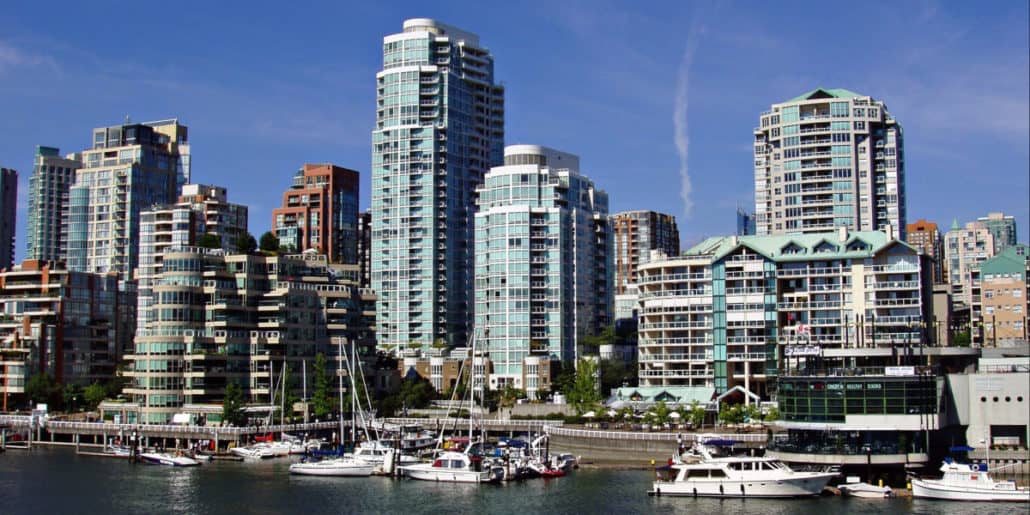There is no doubt that BC’s international student population is on the rise. This is true not only in the post-secondary realm, which represents the majority of international students, but also within the K-12 sector. All of these students are on temporary study permits. When we look within the K-12 sector, a large majority of the students are attending public schools. However, there is also a significant increase in non-resident students in BC’s independent schools. Particularly noticeable are the schools which offer boarding programs. These schools have largely benefited from the influx of internationals.
When looking at the increasing number of non-resident school-aged children entering education system, there are so many factors to consider. Canada, and particularly BC, is becoming a truly recognizable option for families looking for overseas education. But what is it about our Province that is attracting families from around the world? I have outlined some opinions on this question below.
Fair Immigration Rules and Study Permit Access
Since studying in BC is a privilege and not a right, the legal status of our international students is governed by the federal government; in particular, the department of Immigration Refugee Citizenship Canada. Students entering our schools are required to obtain a study permit before they commence studies. So long as the student has an offer of acceptance from a Designated Learning Institution, and can prove that they can pay for travel, fees, and living expenses, they will most likely be granted a permit. The permit length corresponds to the study program duration, up to one year. No permits are for more than one year, since fees, acceptances and grades are usually conditional per year of study. Furthermore, if a program of study is less than 6 months in duration, no study permit is needed. This is important when considering short-term programs such as ELL camps, courses, or trips. Most importantly, Canada is a country of tolerance and acceptance; no one individual will ever be denied access to our country based on ethnicity, nationality, race, gender or belief system.
Safe Cities, Reputable Institutions, Temperate Climate
BC, and in particular, the lower mainland has some of the highest seasonal temperatures in Canada. Families from overseas are attracted to the warmer climate in Vancouver, more so than other cities in Canada. Vancouver is the second largest recipient of international students in Canada next to Toronto, when factoring the total number of students coming to Canada. Canada also boasts world-renowned post-secondary institutions such as McGill University, University of Toronto, and the University of British Columbia. According to a recent statistic I found, almost 4 out of every 10 international K-12 students will go on to attend a Canadian Post-secondary Institution. This statistic is in addition to the direct-entry post-secondary students coming from overseas. Lastly, Canada is known around the world as a safe country with modern cities. This in itself attracts many families seeking boarding schools for their children.
Secondary Pathways to Reputable University Programs
Perhaps the most influential driver of education is BC’s reputable and world-class post-secondary institutions. The University of British Columbia, The University of Victoria, the British Columbia Institute of Technology, to name a few, are achieving world recognition for their achievements in undergraduate and graduate studies. I will say, that when I went through the system (I went to the University of Victoria), the facilities, programming, and resources were nothing like they are today. These days, more so than ever, BC’s post-secondary institutions are on the rise, and the opportunity for international students has never been more available.
Now that BC’s post-secondary institutions are achieving status worthy of recognition, many secondary avenues, such as those in independent boarding schools, are creating “pathway programs” for international students with language restrictions. Schools that invest in these programs are rewarded with the benefits of hand-picking their main school international applicants. The pathway programs act as “preparatory pools” for internationals. The nature of the preparatory model drives student motivation and learning, to a certain degree. It is also true that these programs enable international students to showcase otherwise unnoticeable skills. Confidence boosting, socialization, fostered integration are all positive off-shoots of this model. In my opinion, preparatory programs for independent boarding schools work, and they an excellent opportunity for any student or family wishing to get the first step.
It is true that the number of pathway programs throughout all of BC has increased. International students seeking English preparation courses are now reaping the benefits of integrated language programming with credit courses for credential programs. An example in the post secondary realm is Langara College, which has developed a partnership with Universities, through the University Quality Alliance program.
Worthwhile Opportunities
Lastly, it is true that BC is one of Canada’s strongest economies. During the past three years, many more people are finding steady work, with great opportunities. This has never been more applicable to students finishing up school. The Canadian government has realized that international post-secondary students are an excellent investment for great jobs. Now, if you graduate from a Canadian post-secondary institution, you can apply for a work permit, which can lead to permanent residency. For the first time, international students are provided with clear access to a vibrant economy and job market. What’s more is that BC’s economy is anticipating a big surge in the coming years due to a federal approval of the Kinder Morgan Pipeline to Vancouver. If you are an international student in BC looking to apply for Permanent Residence (PR), your first step should be looking at ways to get a post-graduate work permit so you can apply for jobs. Once you have at least 12 months full time work experience in a skilled job market, you can be nominated for PR.perfect replica rolex explorer ii

